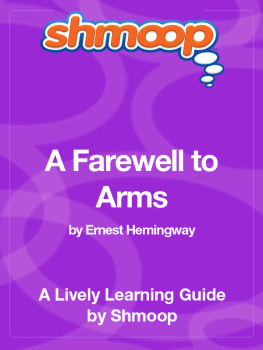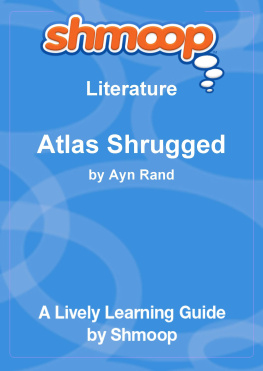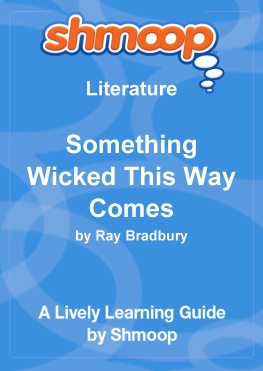
Table of Contents
In a Nutshell/Overview
A Farewell to Arms was published in 1929 by Ernest Hemingway, a Nobel Prize-winning American author. This novel is semi-autobiographical. Like the protagonist, Hemingway served in the Italian Army as a Red Cross ambulance driver during World War I, got wounded, and spent time in an American Army in Milan, where he met a nurse. But unlike Hemingway, the novel's protagonist starts a love affair with the nurse. Similar to characters in A Farewell to Arms, Hemingway was deeply influenced by his experiences at war. In fact, Hemingway is considered to be part of the "The Lost Generation." The phrase was coined by Gertrude Stein to refer to Modernist artists who felt "lost" after witnessing the horrors of World War I.
Hemingway certainly relied on his own experiences in WWI Italy to write this novel, but he did use other sources as well. Though A Farewell to Arms begins in 1916, Hemingway didn't get to Italy until the summer of 1918. The Italian retreat from Caporetto, described in such detailed in the novel, began in October 1917. So how did Hemingway describe it so well? The novel is meticulously researched. Hemingway was a journalist and worked for the Kansas City Star newspaper when the retreat was on, read details of it, and was extremely concerned over the war in general. (For a discussion of the importance of newspapers to the novel, see "Symbols, Imagery, and Allegory.") It's likely that such concern inspired him to enlist with the Red Cross in the first place.
A Farewell to Arms caused a lot of fuss when its first installment was published by Scribner's Magazine. The Boston superintendent of police kept Scribner's off newsstands, though not for long. He claimed it was pornography. (Check out "Sex" for more.) Luckily, the ban only boosted sales and gave the novel free publicity. Nowadays, it's hardly considered pornographic and is instead known for its sensitive depiction of the war. The novel is even taught at U.S. military academies.
Whats Up With the Title?
Critics are basically in agreement that there are three straightforward interpretations of the title, though there are many different ways to analyze the novel in terms of those interpretations. The first two interpretations stem from the dual meaning of the word "arms." "Arms" refers to the "arms" or weapons used in wars, and to the embracing "arms" of human beings. There is also a poem, written by George Peel in the 1500s, called "A Farewell to Arms." (Check it out here.)
Although it has become a commonly accepted "fact," it is only
assumed that Hemingway consciously borrowed his title from the George Peele poem. Nobody knows for sure if he even knew the poem existed. Critics note that the poem shows the poet undergoing a series of transformations, somewhat similar to those experienced by Frederic Henry.
If Hemingway did refer to the poem intentionally, it's an ironic homage for sure. The poem was written to Queen Elizabeth and is a lament that the poet can longer serve the queen by fighting in battles. Unless the poem is ironic as well, we don't think this is quite what Hemingway had in mind. While the novel presents a romantic view of war, in that the fact of war intensifies the characters' relationships, some of the characters wound themselves in terrible ways to keep from facing the horror of the battlefield. The fighting itself is not romanticized, but instead presented starkly and realistically as something nobody in their right mind would be sad to stop doing.
Now let's look at a few ways we can analyze the title using the word "arms." Since the book spends much time describing the horrors of World War I, the title can be seen as a
plea to the world to say "farewell" to wars and the weapons we use to fight them. Since Frederic leaves his post as ambulance driver for the Italian army during the retreat, and then flees with Catherine to Switzerland to avoid being arrested for desertion, the title can refer specifically to
Frederic's "farewell" to the weapons of war when he decides to end his personal involvement with it. There is some irony at work here, because when Frederic says "farewell" to the Italian army, he also says hello to the lover's arms of Catherine. (There are those two meanings of "arms" again.) When she dies, he must say farewell to those arms as well.
Catherine's death also parallels the death of a soldier in battle. Remember this famous scene? When Frederic is transported in the ambulance, the wounded soldier above him has "hemorrhaged" and the blood drips on Frederic. Catherine too dies of "hemorrhage," though her wound comes from her battle with childbirth.
Looking at the parallel between Catherine and the soldier helps us remember how much love exists between Frederic and the men he encounters in the war. In addition to saying farewell to Catherine's loving arms, Frederic says farewell to the loving arms of many of these men in the novel. Also, because the novel is written in the past tense as Frederic's memory of both World War I and of Catherine, the title can be a comment on the paradoxical way that Frederic is dealing with the trauma of both such experiences.
To deal with such intense pain and loss, he relives it through remembering it and telling it. By preserving the events in a narrated memory, he can
try to say "farewell" to the arms of pain that bind him, and perhaps make things hurt a little bit less. He also honors the loving arms behind the pain by giving them a place in remembered history.
Whats Up With the Ending?
We all know that
A Farewell to Arms ends tragically, with the death of Frederic and Catherine's son. One good way to see the deeper meaning of the tragedy is to look at the way the novel is structured. It's told in the first person, in the past tense, like a memory. So, at the beginning of the novel, the narrator already knows how it will end.
While we read, we can pretend that we've met Frederic in some cafe or bar and he's telling us the story over multiple pasta courses and fine wines. As we discuss in "Tone," Frederic trusts us with his story. And, because it's a memory, he gets some things wrong, and he might embellish some things (like the dialogue) to entertain us. It's also probable that the trauma of many of the events, and the number of beers in Frederic when he experiences them, have
colored his memories. Unless Frederic has changed a great deal, he's probably drinking
while he's telling the story. In short, as we discuss in "Point of View/Narrative Voice," in some ways, at some times, Frederic can be considered an unreliable narrator. He's only human, right?
If Frederic is telling you this story while drinking, then he's pretty smashed by the time he gets to the end, which might have something to do with why the following passages are so weird.
[The doctor] held him by his heels and slapped him.
"Is he all right?"
"He's magnificent. He'll weigh 5 kilos [eleven pounds]."
I had no feeling for him. He did not seem to have anything to do with me. I felt no feeling of fatherhood.
"Aren't you proud of your son?" the nurse asked (41.183-187).
Now, a little while later, we get this scene.
"What's the matter with the baby?" I asked.
"Didn't you know?"
"No."
"He wasn't alive."
"He was dead?"
"They couldn't start him breathing. The chord was caught around his neck or something" (41.216-222).
The fact that the baby is dead when Frederic first sees him at least partially explains why Frederic "felt no feeling of fatherhood," and we can infer that the doctor is smacking the kid around to try to revive him, but it doesn't in any way explain why they are acting like everything is just fine. You just don't go around calling dead babies or even near dead babies "magnificent." And even




















